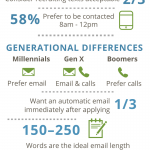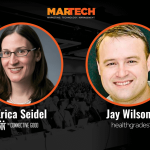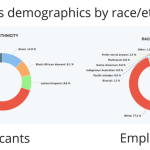The Low-Tech Skills I Look For In Every Data Scientist I Hire
Hristo Gyoshev is hiring data scientists right now, but he isn’t just looking for people with advanced technical know-how. It takes more than that to land a job offer.
Now the head of business operations and strategy at MasterClass, the online education startup, Gyoshev has a background in product strategy and operations at consumer web companies, including Yahoo, as well as enterprise businesses. So he’s had a front-row seat to the sorts of projects data scientists actually wind up working on inside companies. As a result, Gyoshev prizes learning, flexibility, and a strong sense of context just as much as analytical chops.
Here are a few of the non-technical skills he looks for in data science candidates.
Range And Adaptability
“One of the main assets we look for is a desire to work on projects across a very broad range of analytic disciplines,” says Gyoshev, “from quantitative market research and/or designing, conducting, and analyzing user surveys to statistical analysis, business intelligence, and analytics. We also look for candidates who are comfortable learning something new to remove bottlenecks and keep a project moving.” As Gyoshev sees it, that comes down to two skills:
- Sufficient knowledge of statistics to determine what is or isn’t a valid statistical inference, [to] recognize and prevent biases, etc.
- The desire and ability to obtain and work with real-world data (which is always imperfect) and derive actionable insights.
In addition to working in Excel, SQL, Python, and R, Gyoshev says MasterClass also needs data scientists who have “experience in social science research or market/user research, through either academic or industry work” as well as business reporting and analytics. Range is a good thing.
An Eye For Context
“Strive to understand and keep in mind the broader context of the problem you are being asked to solve—or the problem behind the question you are being asked,” Gyoshev suggests. “Whenever you are asked to perform a certain analysis, or build a model, someone at the company believes that this would help them solve a particular problem.”
“Sometimes you can tell in advance that it won’t, and sometimes you can suggest a better approach. Your analysis, model, [or] other work product will always be better if you start from a good understanding of the core objectives of the ‘clients’ of your analysis.” (That’s a good rule to remember for data science job interviews, too.)
Problem-Solving Skills
This one should come as no surprise. While interviewing candidates, Gyoshev says he tries to ask about challenges data scientists have faced in previous jobs—and what they did to overcome them. “We may ask for examples of specific types of projects they have worked on, and then ask them to walk us through their approach and thinking, the tools they used, the major challenges they encountered, and how they resolved them.”
Sometimes MasterClass also asks candidates to demonstrate their problem-solving abilities through a short project “to see how they approach some specific problem,” says Gyoshev, “and, yes, to be able to see the quality of a deliverable they produce.”
Going Beyond Data-Wrangling
Compared to other data science roles, Gyoshev says the ones he’s hiring for at MasterClass aren’t heavy on “machine learning or algorithms, and only minimal data-wrangling.” Instead, the company needs experts who can perform “a very wide variety of analyses that would inform a broad range of decisions—about the products, business, and operations of the company.”
That obviously means some degree of exporting, processing, and so on, Gyoshev adds, “but would also involve building various predictive models; designing, conducting, and analyzing surveys or experiments; helping to define and set up reporting and metrics; and conducting one-off analyses related to various aspects of our business operations.” In other words, it’s a grab-bag of data-based skills that might stretch the usual job description you’d find other other data-scientist postings.
Gyoshev wants candidates who find that exciting—even if they don’t walk through the door knowing everything they’ll need to on day one: “We do need them to be highly versatile and familiar with a number of other aspects of data analysis,” he says, but “we also need them to be willing and able to learn tools or methods they may not have previously used.”
This article is adapted with permission from Springboard’s Data Science Interview Guide. Springboard recently launched a data science career track bootcamp.
A former Yahoo exec who’s now MasterClass’s operations chief explains why adaptability matters as much as technical chops.
Hristo Gyoshev is hiring data scientists right now, but he isn’t just looking for people with advanced technical know-how. It takes more than that to land a job offer.
Fast Company , Read Full Story
(24)













